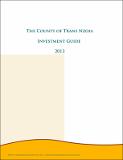| dc.description.abstract | This study discusses a theoretical framework that is used to explore the
interaction between the state and private sector. Three classes of businesses
are identified, namely: makers or producers; traders/merchants or middlemen;
and producers of financial services. Interactions between these three classes
form a natural order in economics that can allow people to become wealthy
without need for direction from the State. These three classes, together with
the government, comprise a quartet that is key in national wealth creation. In
terms of a national strategy for wealth creation, the businesses in the segments
involved in 'production' are the strategic choice. However, there is no guarantee
that government interventions or the institutional environment will favour
this class of enterprises. Information on private sector and interactions with
the Kenyan government is used to illustrate this framework. It is argued that
despite market reforms some aspects of the institutional environment continue
to favour those business classes in the distribution chain rather than the
'production' and is inimical to upgrading. Although the informal sector
continues to receive wide policy attention, based on this framework, only
about 30 percent would qualify for a strategic public policy; for the rest, the
best the government can do is to concentrate on the fundamentals. | en |


